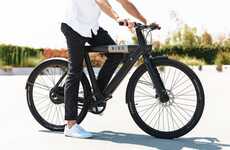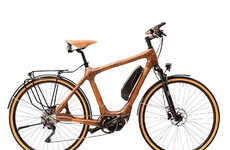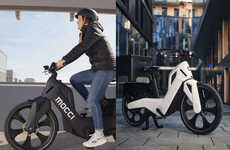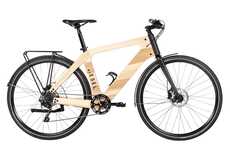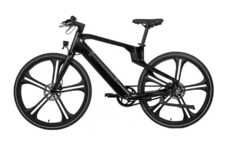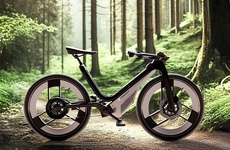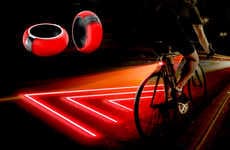
The Mosquito Bike Lets You Navigate the Urban Jungle
Robyn Currie — September 8, 2009 — Eco
References: theblogpaper & notcot.org
Electrically powered bikes are the future with regards to urban transportation and now German designers Tom Mudra and Hans-Tobias Schicktanz have brought the funk with The Mosquito.
According to the designers, “Our aim was to create a lightweight and attractive E- Bike suitable for urban places. The motor is powered by lithium batteries which cost about 50p to charge. The Mosquito has got a range of about 60 km (37 miles) with a maximum Speed of 50 km/h (31 miles).”
Adding to this, most of The Mosquito’s parts are readily available at conventional bike shops, allowing for easy maintenance and repair. Plus it looks super cool.
According to the designers, “Our aim was to create a lightweight and attractive E- Bike suitable for urban places. The motor is powered by lithium batteries which cost about 50p to charge. The Mosquito has got a range of about 60 km (37 miles) with a maximum Speed of 50 km/h (31 miles).”
Adding to this, most of The Mosquito’s parts are readily available at conventional bike shops, allowing for easy maintenance and repair. Plus it looks super cool.
Trend Themes
1. Electrically Powered Bikes - Disruptive innovation opportunity: Develop advanced battery technology and design sleek urban e-bikes to meet the growing demand for sustainable transportation in crowded cities.
2. Lightweight E-bikes - Disruptive innovation opportunity: Create innovative materials and manufacturing processes to produce lightweight and attractive electric bikes with longer ranges and higher speeds.
3. Accessible E-bike Parts - Disruptive innovation opportunity: Develop standardized e-bike components and establish partnerships with conventional bike shops to make maintenance and repair easier for electric bike owners.
Industry Implications
1. E-bike Industry - Disruptive innovation opportunity: Invest in research and development to improve battery efficiency and enhance the design and functionality of electric bikes.
2. Material Science Industry - Disruptive innovation opportunity: Innovate new materials that are light yet durable to make electric bikes more lightweight and energy-efficient.
3. Bicycle Retail Industry - Disruptive innovation opportunity: Collaborate with e-bike manufacturers and offer specialized maintenance services and readily available parts to cater to the growing market of electric bike owners.
3.4
Score
Popularity
Activity
Freshness


